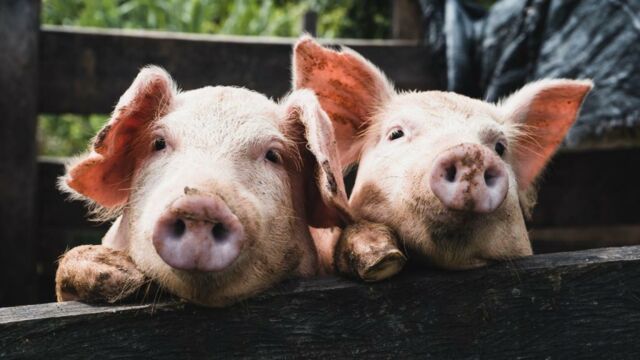Scientists are increasingly concerned about a highly antibiotic-resistant strain of MRSA that canjump from pigs to humans.
Discover our latest podcast
What is MRSA?
According to the NHS, MRSA (methicillin-resistant Staphylococcus aureus) is a type of bacteria that's resistant to several widely used antibiotics. This means it can be harder to treat than other bacterial infections. MRSA is often referred to as a 'superbug.'
MRSA can live harmlessly on the skin of some people, however, if it gets deeper into the skin, it can cause an infection which can be serious. Symptoms include:
- Swelling
- Warmth
- Pain
- Pus
- Redness, but this may be less visible on darker skin
If it gets further into the body, it can also lead to:
- A high temperature
- Chills
- Aches and pains
- Dizziness
- Confusion
A highly antibiotic-resistant strain of #MRSA has evolved on pig farms, probably due to historically high levels of antibiotic use.
— Cambridge University (@Cambridge_Uni) June 28, 2022
The strain can jump to humans and is a potential public health threat. @julienisking@CamVetSchool@sangerinstitutehttps://t.co/UQwvXpglv0
What is the problem?
A new study has found that the CC398 strain has remained antibiotic-resistant for decades in pigs and other livestock, and is able to rapidly adapt to human hosts while maintaining that resistance, as reported by Sky News. Dr Gemma Murray, a lead author of the study published in eLife, said:
Historically high levels of antibiotic use (on pig farms) may have led to the evolution of this highly antibiotic resistant strain of MRSA.
The results underscore the potential risk to public health this strain of MRSA represents. Indeed, the World Health Organisation classifies the superbug as one of the biggest global threats to human health because of its antibiotic resistance, as reported by The Independent.
The strain has been linked to growing numbers of human infections, in both those who have and, perhaps more worryingly, have not had direct contact with livestock. Dr Lucy Weinert in the University of Cambridge's Department of Veterinary Medicine, senior author of the paper said:
Understanding the emergence and success of CC398 in European livestock - and its capacity to infect humans - is vitally important in managing the risk it poses to public health.
Read more:
⋙ New virus discovered in rodents in Europe, should we be worried?
⋙ This highly contagious ancient illness is becoming resistant to treatment
⋙ Polio: 3 most severe symptoms of the viral disease that recently re-emerged in the UK















